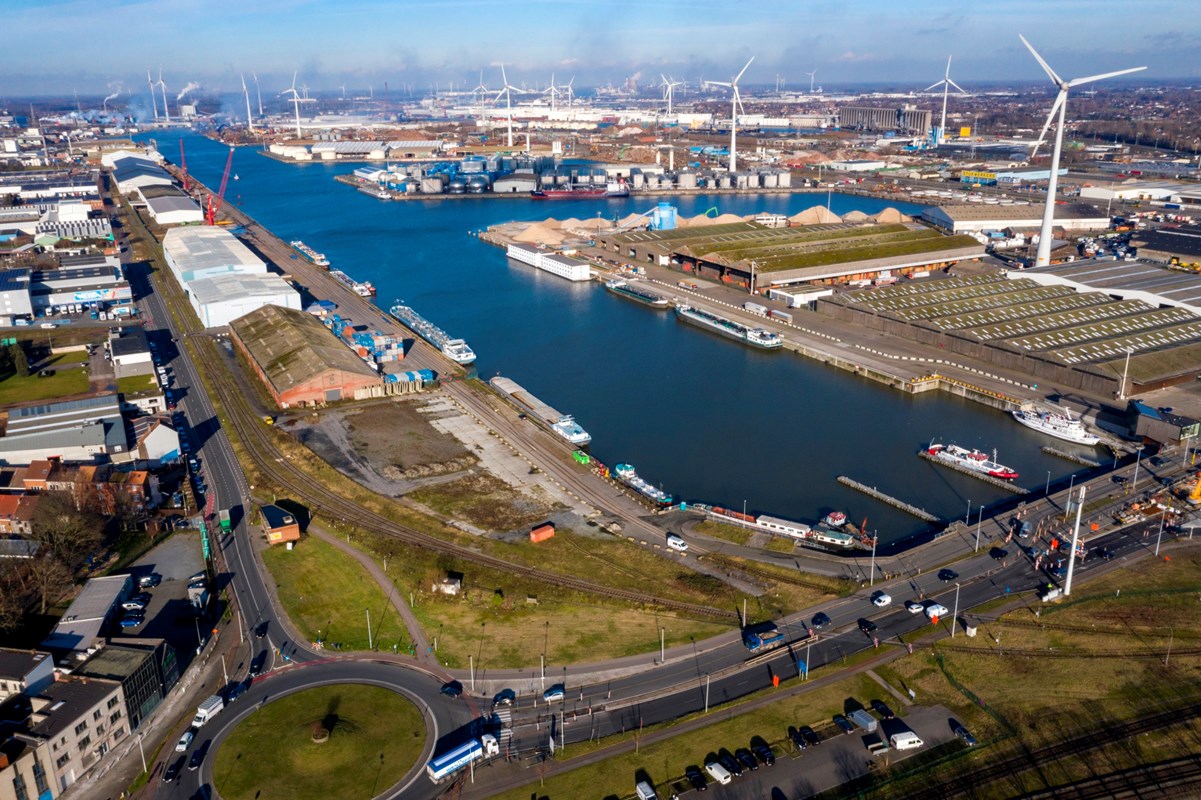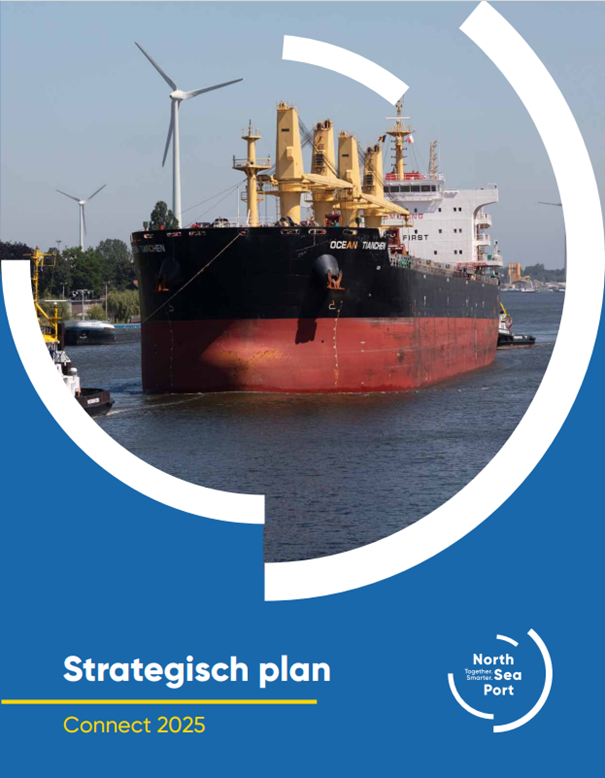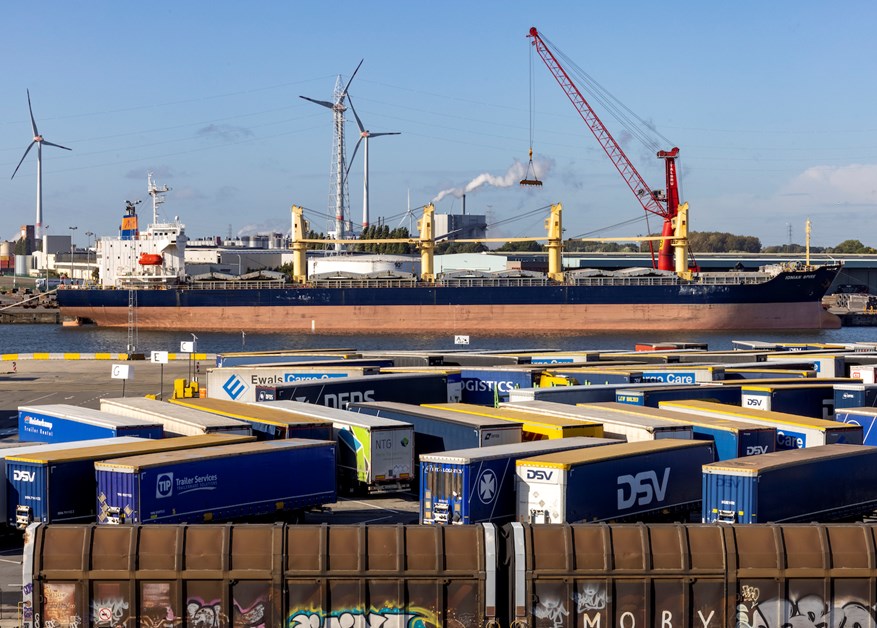North Sea Port has all the unique assets to become carbon-neutral with strong and sustainable growth in jobs and added value in the region. This is the conclusion of the ‘Circular Transition Pathway’ study by Econopolis on behalf of North Sea Port and in collaboration with the City of Ghent, CAPTURE/UGent and the Province of East Flanders. The study looked at how the Ghent part of the port could become CO2-neutral, the economic opportunities this could offer and the conditions for success.
The City of Ghent emitted 14 million tonnes of CO2 in 2019, which is about 1/5 of the total Flemish CO2 emissions. Most of these emissions, 12.8 million tonnes, are generated in the industrial port cluster of the Ghent part of the cross-border Flemish-Dutch port. This represents 1/3 of Flemish CO2 emissions from energy and industrial companies and is comparable to the emissions of the port of Antwerp.
Basic industries are part of the solution
A key premise of the Econopolis study, the Climate Plan, is that basic industry should be seen as part of the solution, not the problem. A simple-looking solution to achieve climate goals is to reject basic industry in the Ghent part of the port area. Unfortunately, this solution is only attractive on paper. The relocation of eco-efficient basic industry in Ghent will lead to higher CO2 emissions worldwide, including in Europe, because we will be importing grey products from other countries. In the past, we have already exported a large proportion of our CO2 emissions to other countries, such as China and Eastern Europe, due to the increasing relocation of our basic industry. This has led to an increase in our CO2 consumption. If we are serious about climate change, this is not a good strategy if we ignore the impact of our delocalization on total global greenhouse gas emissions.
Ghent Canal Zone can become carbon neutral: capture and use of CO2, residual heat and technology
North Sea Port stands strong in terms of available space in the port area, the presence of a unique ecosystem of manufacturing companies and services with many opportunities for circularity, strong knowledge institutions and a lot of high-quality and cheap CO2 and CO point sources. The Econopolis study shows that 8 million tonnes per year can be avoided by 2030 through the application of market-ready technologies. These technologies mainly focus on CO2 capture and reuse or storage (so-called CCU/S, carbon capture, use/storage), green energy and circularity. For example, we can use CO2 to produce basic chemical products and we can use residual heat from the port to heat houses in Ghent. New technologies being developed today will ensure that the port region will be completely carbon neutral by 2050.
Climate change transition could be a success and almost double the number of jobs: demonstration projects, infrastructure and regulatory framework needed
The climate business is becoming the fastest growing economic sector in Europe. Globally, a radical shift from fossil fuels to renewable energy is underway to make our society completely carbon neutral. The reorientation towards a sustainable economy will be accompanied by a large-scale re-shoring of industrial activities: business activities will be brought back from abroad. Local production of secondary raw materials (recycled, reusable raw materials) instead of imported primary raw materials will lead to more job creation, added value and exports. For example, CCU-based fuels and raw materials can be produced locally rather than imported from abroad. This re-shoring will require a lot of additional space, which is precisely the advantage of the Ghent port region.
By 2035, the number of jobs in Ghent could almost double as a result of the further expansion of green basic industries. However, there are a number of critical preconditions for the success of this plan. For example, we need to create incentives to enable large-scale demonstration projects that are not yet profitable, such as the Dutch SDE++ (Stimulating Sustainable Energy Production and Climate Transition) program. We also need to build the necessary infrastructure to facilitate low-carbon activities, such as a hydrogen backbone and heat networks. The regulatory framework and the labour market will have to be adapted to the new needs created by the climate plan. For all this, it is essential to take the first steps today: in business, government and research.
Ecosystem strategy is essential: working together to achieve climate goals
More than ever, all kinds of actors in society will need to work together to achieve climate goals. The transition to a circular society will bring together sectors that have never been connected before. For example, CO2 waste streams and residual heat from the Ghent steelworks can be used in the horticultural sector around Ghent. There is also an increasing need for cooperation with the Netherlands to exploit cross-border synergies. For example, in the field of the labour market, energy security and the exchange of waste streams. Finally, the port, the city and the province will have to work ever more closely together.
Speed up the recognition of circular streams as green raw materials: circular streams must be given the necessary certificates so that stakeholders will have the incentives to use them in their processes.
Greening, embedding and significantly expanding industry
Climate neutrality is possible, but we need to see our basic industries as part of the solution. It enables Belgium to develop new technologies in areas such as hydrogen, CCU, green energy and bio-based applications. The ambition should not be to drive the basic industry out of our country and then import grey products. The ambition should be to green our industry, to anchor it and to expand it substantially in the future. Only then can we turn climate change into an economic success story. In future, a port region should no longer communicate in ‘tonnes’ but in ‘CO2 reduction’ and ‘added value growth’. In the Flemish part of North Sea Port, a carbon-neutral port is possible with the implementation of this climate plan. On the Dutch side of the cross-border port area, the industry is also working towards a climate-neutral port under the auspices of Smart Delta Resources.
The study will be presented to the federal and Flemish governments and to the European Commissioner responsible for the European Green Deal.
Daan Schalck, CEO North Sea Port “By greening, embedding and significantly expanding the industry, we can make the port carbon neutral in both the Flemish and Dutch parts of our cross-border port. By 2035, further expansion of the green base industry could almost double the number of jobs in Ghent”.
Geert Noels, Chief Economist, Econopolis “In the future, ports will not excel with their results in tonnes of cargo, but rather in tonnes of CO2 saved”.
Sofie Bracke, Alderman for Economic Affairs, City of Ghent “Our port is a pioneer in the transition to a climate-neutral economy of the future. We want to continue this development and drastically reduce the CO2 emissions of our economy. This study shows an ambitious path, but one that we can only achieve if the European, federal and Flemish governments also put their shoulders to the wheel.”
Prof. Korneel Rabaey, CAPTURE/UGent “For me, the study also shows that North Sea Port needs to strengthen its pioneering role in sustainable ports in order to attract the companies of the future. These are needed to confirm existing companies in new value chains. Research and innovation also play an important role in this; we need to accelerate the transfer of research to the port and, conversely, better respond to the needs within the new value chains.”
Source: North Sea Port press release of January 25, 2022


